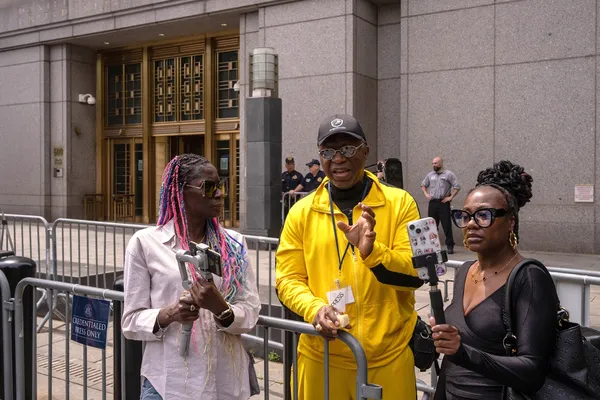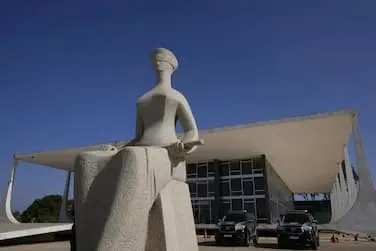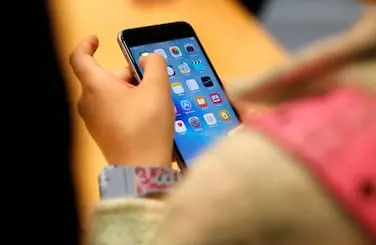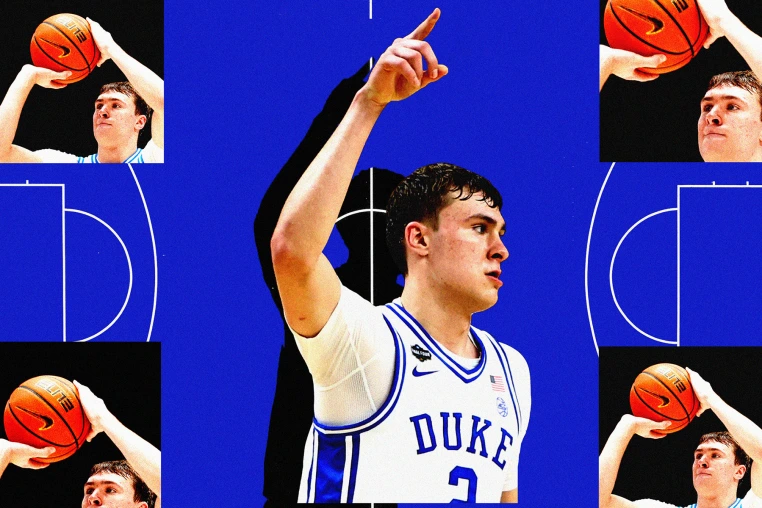Combs, Mangione Trials Fuel Rise of TikTok Courtroom Influencers
The high-profile legal cases of Sean 'Diddy' Combs and Anthony Mangione are giving rise to a new class of TikTok influencers, blending legal commentary, drama, and viral content into a booming social media trend.
The courtrooms may be traditional, but the commentary surrounding them is anything but. As the legal battles of hip-hop mogul Sean 'Diddy' Combs and former ICE chief Anthony Mangione dominate headlines, they’ve also given birth to a fast-growing genre on social media: courtroom TikTok influencers. These content creators are reshaping how the public engages with the justice system—delivering rapid-fire updates, legal analysis, and dramatic reenactments to millions of followers daily.
### A New Form of Legal Storytelling
These TikTok influencers aren’t just reporting the facts—they’re spinning legal narratives for a digital generation. Videos with on-screen court documents, split-screen reactions to depositions, and simplified legal explanations are now going viral by the minute. And with each major development in the Combs and Mangione cases, a fresh wave of TikTok content follows.
The shift signals a reimagining of legal journalism in the attention economy. Traditional media struggles to engage Gen Z, but influencers on TikTok are succeeding by combining courtroom content with personality-driven storytelling. The result: trials aren’t just events—they’re episodic sagas.
### Why These Trials Captured Attention
While celebrity legal battles always draw curiosity, the Combs and Mangione trials offer especially potent ingredients for viral content:
- Sean 'Diddy' Combs is facing multiple allegations of sexual misconduct and abuse. Given his status in entertainment, any legal move—be it a hearing, denial, or new evidence—creates massive intrigue and debate. - Anthony Mangione, the former ICE head, is under scrutiny for child exploitation charges.
The contrast between his role in law enforcement and the nature of the allegations raises deeply emotional and ethical questions. TikTok creators are drawn to these stories not just for clicks, but for the moral, social, and institutional themes they represent. ### Who Are These Influencers?
The new wave of courtroom TikTok creators comes from a range of backgrounds: - Law students offering textbook-based interpretations.
- Practicing attorneys breaking down legal strategies and court procedures. - True crime enthusiasts creating timelines and character maps. - Entertainment commentators offering dramatic commentary and memes.
Popular creators include: - @LawAndLore, a licensed attorney who overlays court filings with case law references. - @JusticeReacts, who reenacts depositions with voiceovers and emojis. - @CourtSideTea, blending gossip, court facts, and legal definitions for a largely female audience.
### Legal Edutainment or Digital Courtroom Chaos?
The trend is sparking debate. On the one hand, it increases public legal literacy, helping viewers understand: - The difference between civil and criminal law - What depositions and motions mean - How pretrial processes and settlements work
On the other hand, critics worry the content is too simplified, sensationalized, or skewed. Some creators cherry-pick information to support pre-determined narratives, while others speculate wildly without legal grounding.
“TikTok trials can become echo chambers,” says media professor Lina Martinez. “Creators drive engagement by reinforcing viewer biases, not necessarily by seeking legal accuracy. ”
### Viral Reach and Monetization
Courtroom TikTok is not just a public education tool—it’s a business.
Creators with strong followings are: - Monetizing through TikTok’s Creator Fund - Selling merch tied to trials (e. g. ‘Gavel Girl’ t-shirts) - Launching legal-themed podcasts - Partnering with law firms, paralegal courses, or media outlets
Some lawyers are leveraging their TikTok success into new client pipelines or speaking gigs, while true crime content houses are snapping up legal influencers to host series across platforms.
### Legal Ethics in the Spotlight
As creators comment on open legal matters, ethical questions emerge: - Could this coverage affect jury pools or witness testimonies? - Should creators disclose when they profit from commentary? - Do viral opinions influence how lawyers present their case?
Some courts are considering stricter rules on digital dissemination of trial materials, while legal professional associations are evaluating whether guidelines for social commentary are needed in the influencer age. “Being a lawyer doesn’t exempt you from responsibility when your post reaches five million people overnight,” says litigation ethics expert James Horowitz. ### Blending Drama and Law
Part of what makes this content so compelling is how it mirrors entertainment tropes: - Daily court updates feel like episodic cliffhangers.
- Alleged victims and defendants are framed as characters. - Legal maneuvers become plot twists. As one creator put it: “It’s like *Suits*, but real, and everyone’s watching in real-time.
”
This fusion of storytelling and law raises visibility but also makes it easier for misinformation and bias to spread if creators don’t fact-check their sources. ### The Courtroom as Stage
The courtroom, long seen as a bastion of order and formality, is becoming a content engine for short-form, user-generated video. Cameras in courtrooms, transcripts available online, and digital journalists livestreaming outside courthouses are all feeding this TikTok boom.
Courts are beginning to adapt. Some judges are issuing social media warnings, reminding observers to avoid defamation, misrepresentation, or unauthorized recordings. ### Impact on Legal Culture
This trend is reshaping more than just content—it's changing the legal ecosystem itself: - Public pressure generated online may impact plea negotiations or settlement discussions.
- Media-savvy lawyers are increasingly prepared to argue in both the court of law and public opinion. - Young people are expressing greater interest in law careers due to influencer inspiration. TikTok creator @YourFutureJD, a Black law student covering the Combs case, says: “People message me saying they never understood court stuff before this.
That’s powerful. That’s why I do it. ”
### What’s Next for TikTok Legal Influencers?
With more celebrity trials on the horizon and no sign of TikTok’s dominance fading, this genre will likely continue to grow.
Expect to see: - Hybrid formats like TikTok + YouTube deep dives - More legal creators partnering with investigative journalists - Court coverage creators being invited to panels, podcasts, and even traditional TV
We may also see legal education itself evolve, with professors assigning TikTok creators as supplemental media for real-time analysis of evolving cases. ### Conclusion: The Gavel Goes Viral
The trials of Sean Combs and Anthony Mangione have done more than dominate headlines—they’ve launched a new wave of legal content creators who are changing how society interacts with the justice system. What was once hidden behind courtroom walls is now dissected in 60-second clips on millions of smartphone screens.
In this new legal-media landscape, the gavel isn’t just a symbol of judgment—it’s a content hook. And on TikTok, court is always in session.




